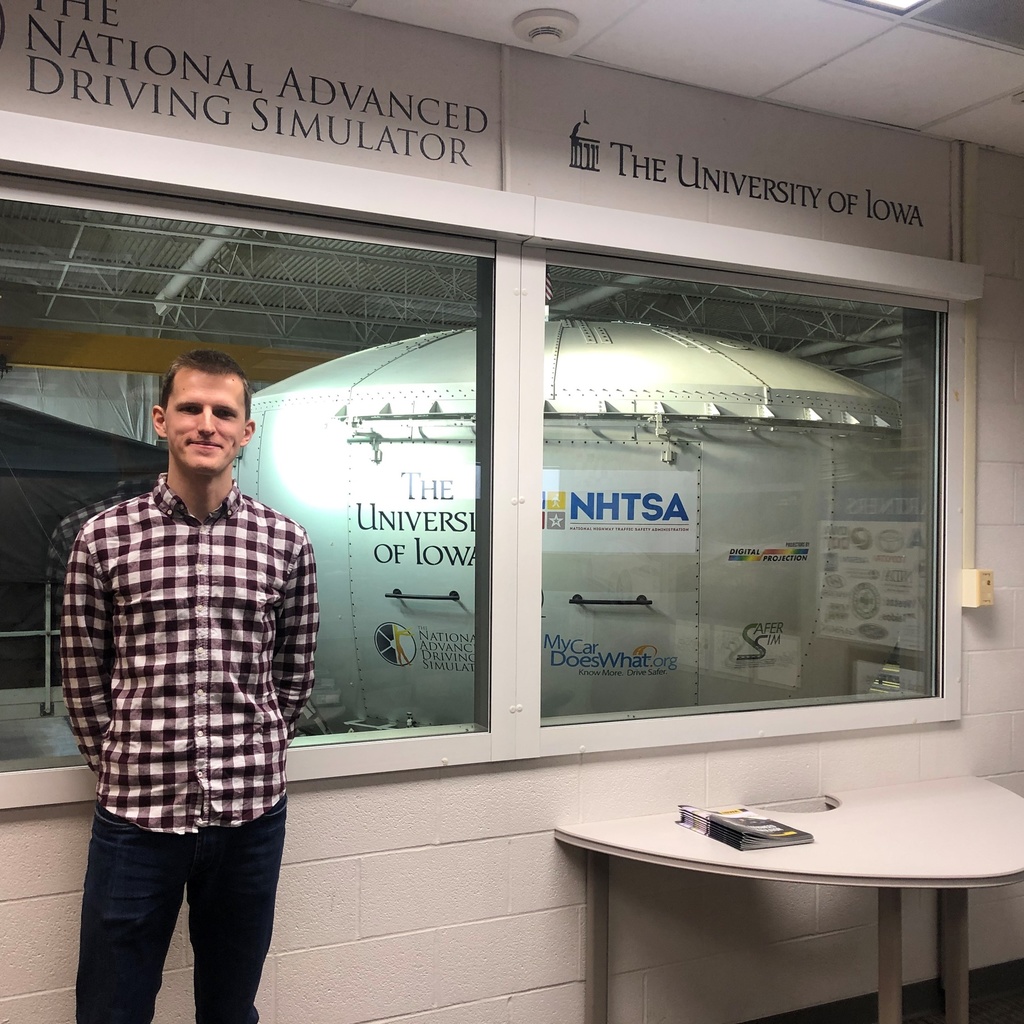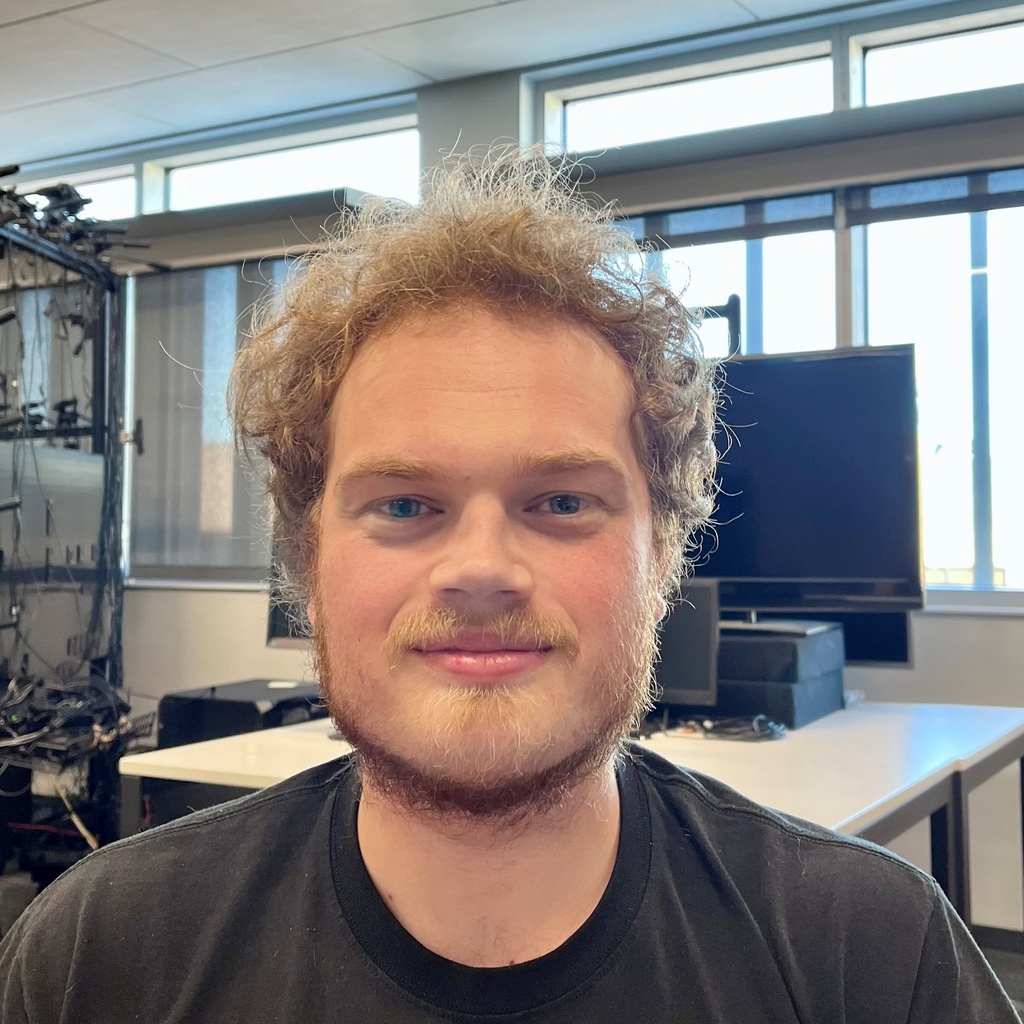
Daniel V. McGehee
Daniel V. McGehee, PhD, is the director of the Driving Safety Research Institute and professor of industrial and systems engineering, emergency medicine, public health, and public policy. Previously, he was director of the Human Factors and Vehicle Safety Research Division at the University of Iowa Public Policy Center. In his capacity as director, he leads a group of faculty, staff, graduate, and undergraduate students in an interdisciplinary transportation research program that includes human factors, automotive safety, and injury that is funded by government and industry.
His interests are in driver attention and response, crash avoidance, automation, and traumatology. He has been the principal investigator of over $42 million in research for the U.S. DOT, NIH, and the automotive industry. From bench to policy, his research experience integrates engineering, medicine, public health, and public policy.
Emily Shull
Emily Shull received her BA in psychology from the University of Iowa in 2018. She began an undergraduate research assistantship at the National Advanced Driving Simulator where she quickly recognized the significance of basic psychological theory in the driving task. Emily has since brought her unique perspective of human attention and behavior to the College of Engineering and the Applied Cognitive Engineering Lab.
Emily's primary interest is understanding how we can effectively facilitate the transition of control from partial automation back to the driver. This includes identifying the minimum amount of time needed for the driver to safely take control, maintaining the driver's situational awareness both before and during the transition of control, and finally, aiding the driver's attentional shift back to the roadway.

Thomas S. Burt
Currently, Thomas Burt is conducting research on impaired driving and performance modeling. His first publication was a literature review to identify gaps in research, understand the implications for modeling driving performance, and describe future research needs. They found a paucity of research that examined high potency strains and modes of use other than inhalation (e.g., edibles, topicals).
His next paper examined the relationship between driver perceptions of their state contrasted with objective measures of their performance while operating a motor vehicle. They found that driver’s perceptions may result in changes to driving behavior that could mitigate the effect of cannabis. These results provide a better understanding of how different strains of cannabis, which produce different subjective experiences for users, could impact driving safety. His future work will expand upon this foundation, with the goal of creating a framework for modeling impaired driving performance.

Joy (Jimin) Kim
Joy Kim got her BA in psychology from Pusan National University, Korea, in 2019 and her MS in human systems engineering from Arizona State University in 2021. Her previous research was about communication in human autonomy teaming. In addition to it, she worked on the validation of team situation awareness measurement, which is considered different from the traditional measurement.
Currently, her research interest is the transfer of learning. As the technology in a vehicle develops, the safety concern about it is increasing as well. When the driver changes their car or when the system is updated, safety issues arise because of the knowledge gap between the old and new systems. By researching the transfer of training, she expects to mitigate drivers’ confusion and use the systems safely.

Emilia Schulter
Emilia Schulter received her BS in chemical engineering from the Monterrey Institute of Technology, Mexico, in 2021. She is currently a research assistant in the Department of Internal Medicine at Carver College of Medicine. Emilia is interested in applying human factors engineering concepts to improve the integration of hand hygiene and personal protective equipment use into processes of care.

Max Y. Miller
Max received his BSE in industrial engineering at the University of Iowa in 2022. He is currently a master's student and teaching assistant, with a focus in data modeling, analysis, and operations research.
His current research at the ACE Lab and Driving Safety Research Institute focuses on human factors, analyzing the visual acuity of visually impaired drivers.

Sabrina M. Vlk
Sabrina is an undergraduate student pursuing a degree in mechanical engineering with a minor in mathematics. In addition, Sabrina is also heavily interested in studying topics related to human factors and cognitive engineering. Currently, she is an undergraduate research assistant at the Driving Safety Research Institute (DSRI) where she collaborates with human subjects and collects data for studies on automated driving systems. Sabrina also works with Bryon Winn, a professor for the Department of Theatre Arts, on the development of a Virtual Reality and Motion Capture Studio in the hopes of producing a new and innovative tool to eventually conduct research with.
Currently, her personal interests in research are broad. She hopes that her involvement with the ACE Lab, DSRI, and the VR/MoCap Studio will inspire her to pursue her own research down the line.

Stefan Plaettner
Stefan Plaettner is a PhD student from the Technical University of Dresden, Germany. He got his Dipl.-Ing. in mechanical engineering in 2019 and subsequently joined the TU Dresden Driving Simulator research group. From January to June 2023, Stefan conducting a research stay at Iowa working with the National Advanced Driving Simulator under a Fulbright short-term scholarship. With an extensive exchange of research knowledge as well as cultural aspects, the research stay will be mutually beneficial.
In his Ph.D. Stefan will investigate how suitable approaches to evaluate the impact of simulation software on the behavioral validity can be measured in a reproducible process, which will allow other driving simulator researchers to have a baseline comparison of their research results.

Michael R. Phillips
Michael Phillips received his B.A. in philosophy from Adrian College in 2020. Currently, He is a PhD student and teaching assistant in philosophy at the University of Iowa. Michael’s academic interests revolve around finding solutions to ethical concerns in the development and implementation of autonomous technologies. He aims to resolve moral disagreements through pragmatism and highlighting AI’s role in individual and societal well-being.
At the ACE Lab, Michael is a research assistant focusing on how autonomous vehicles ought to behave in crashes, the integration of autonomous and non-autonomous vehicles, risk evaluation, data privacy, and the distribution of moral responsibility in crashes.